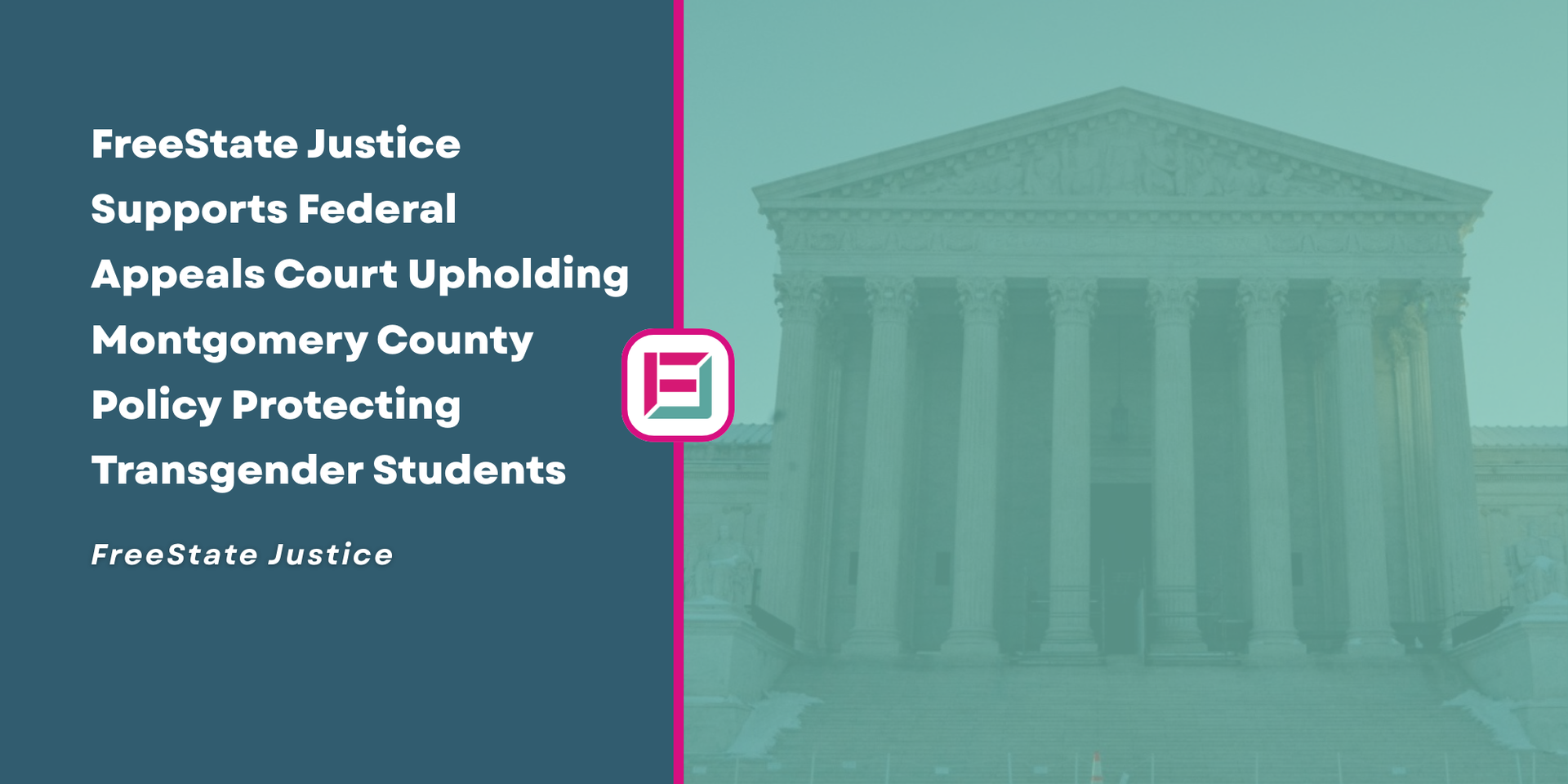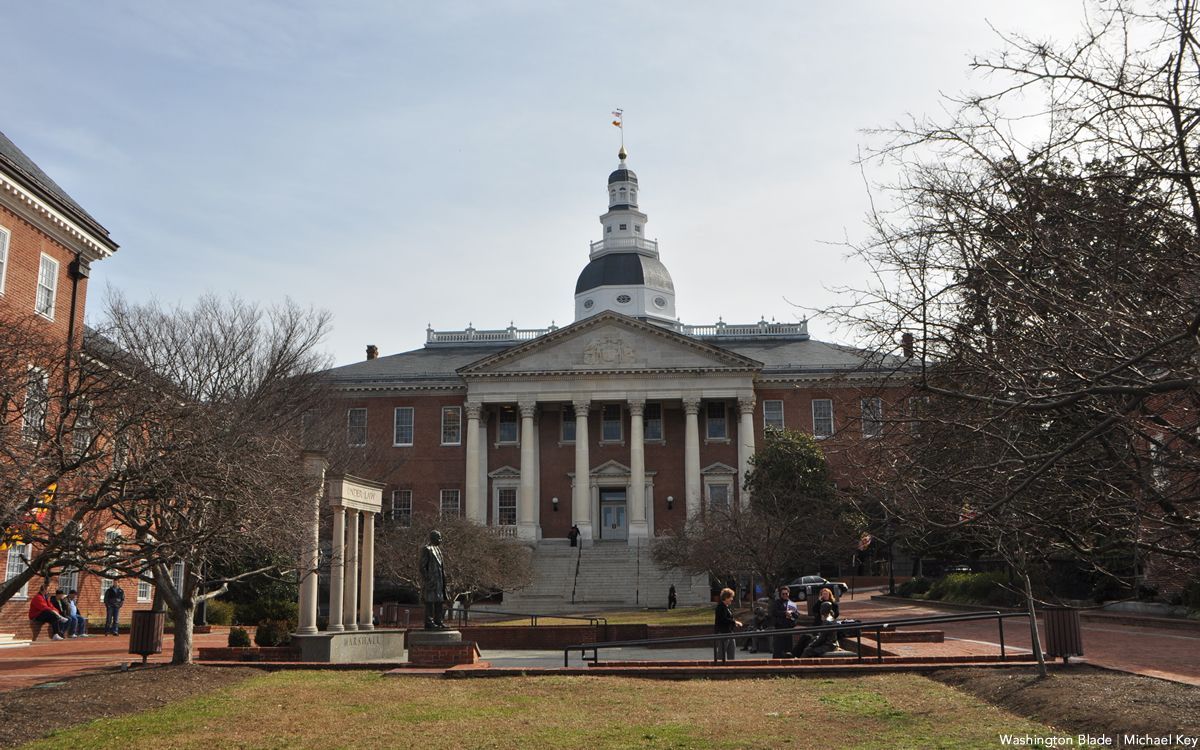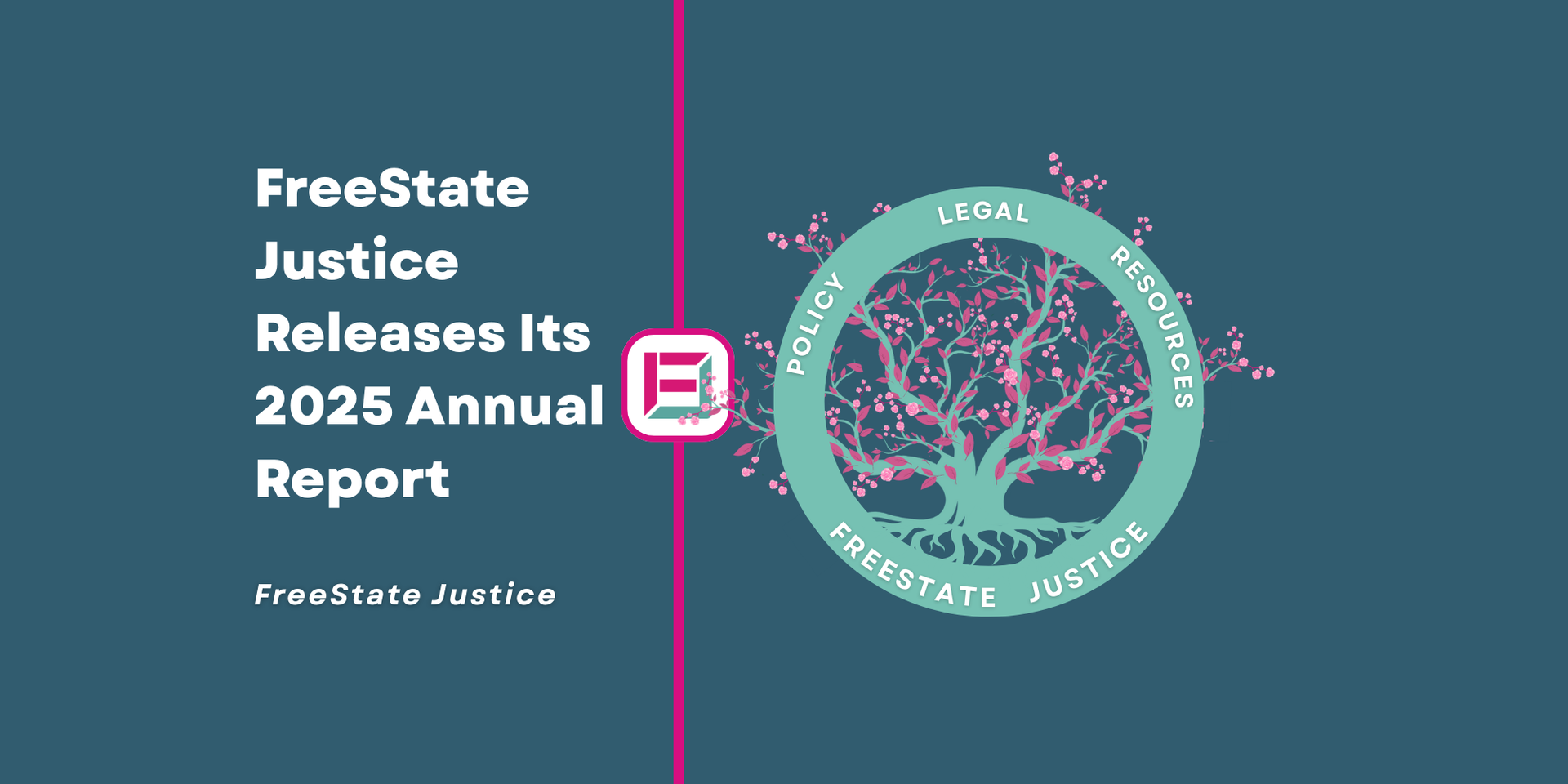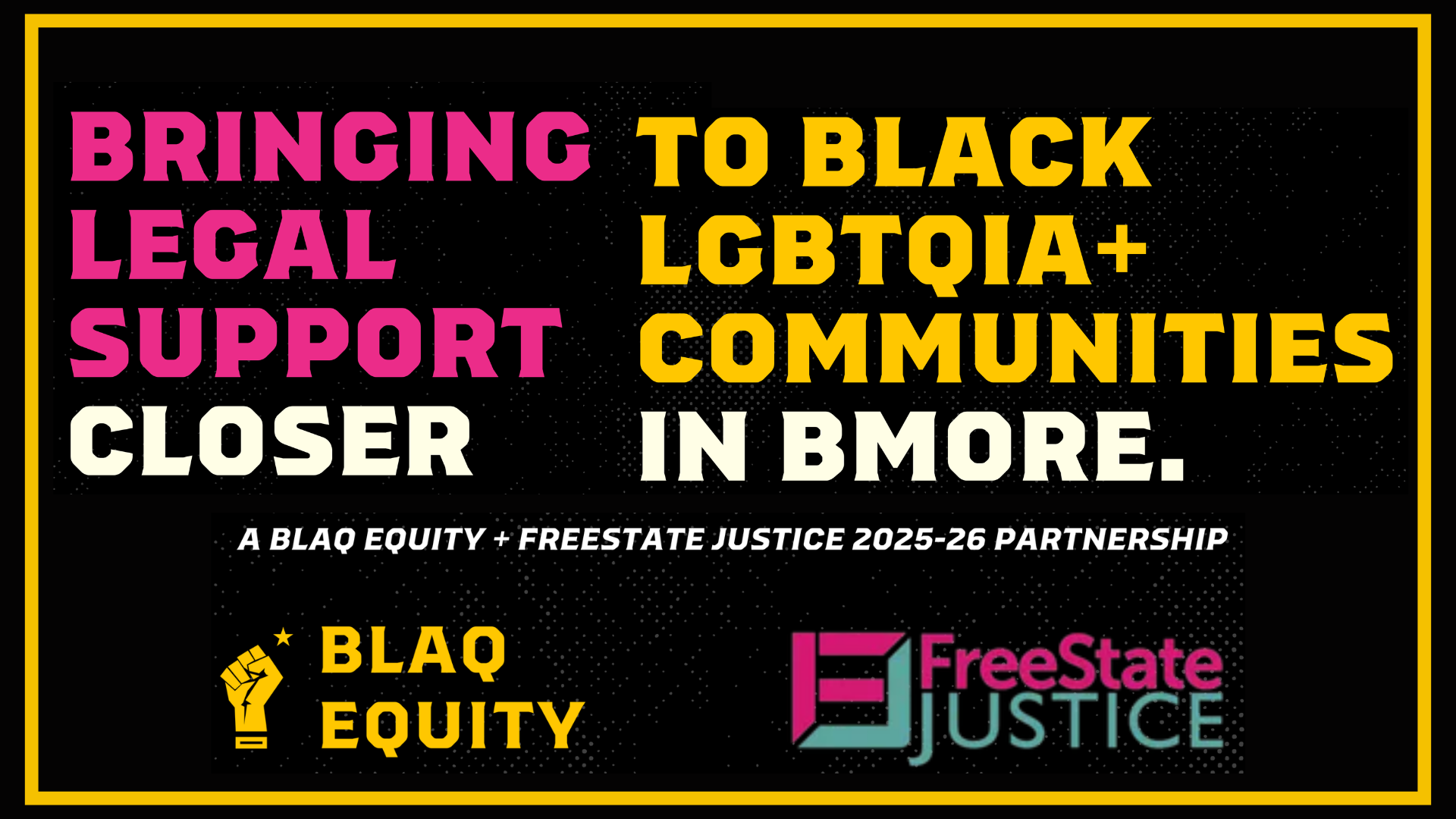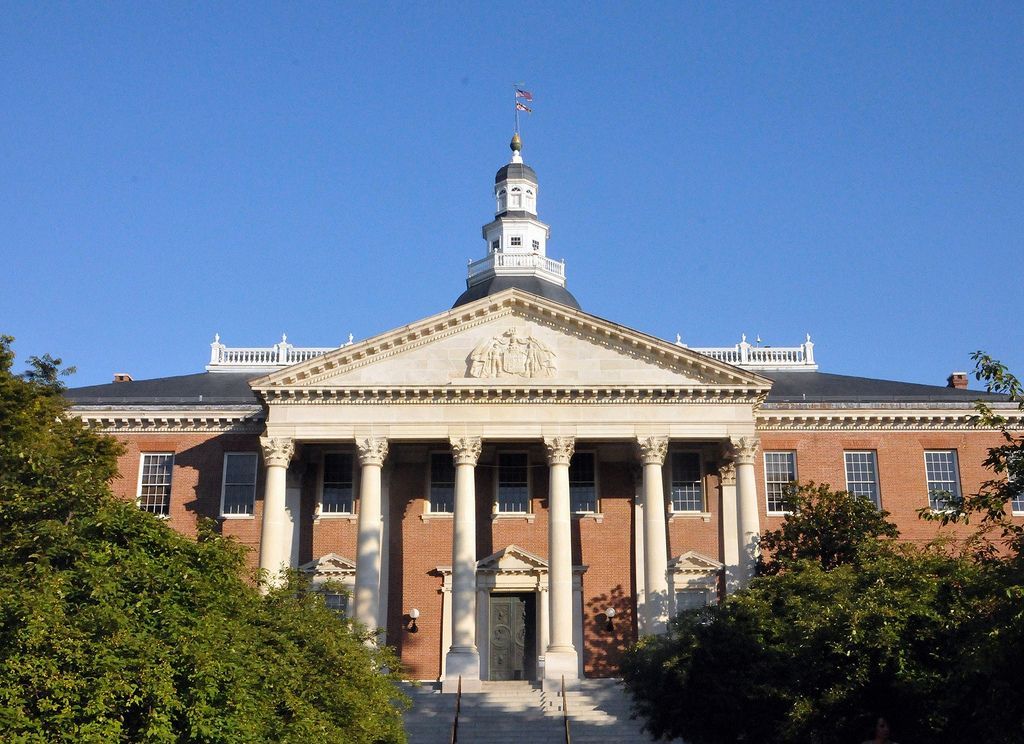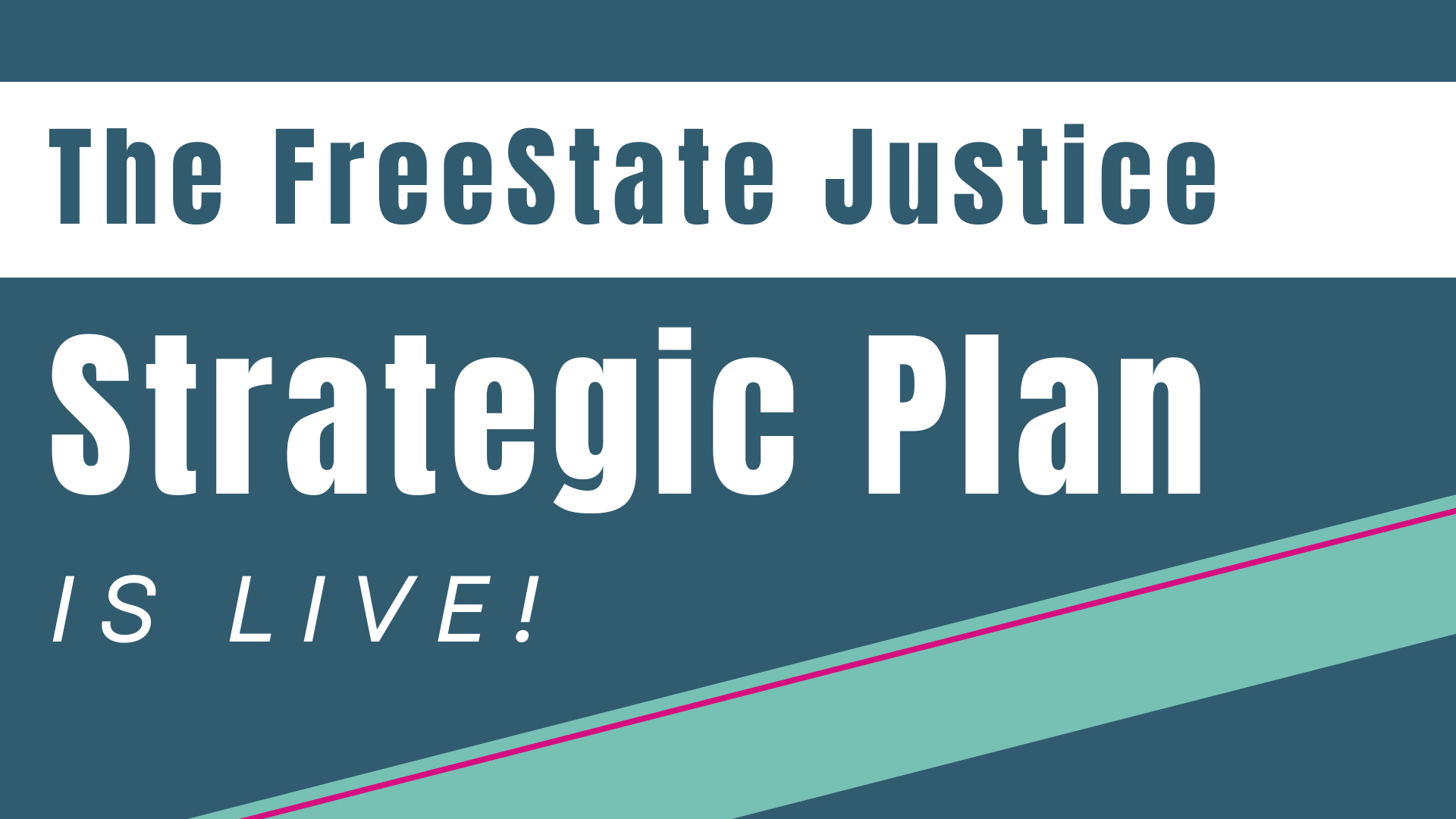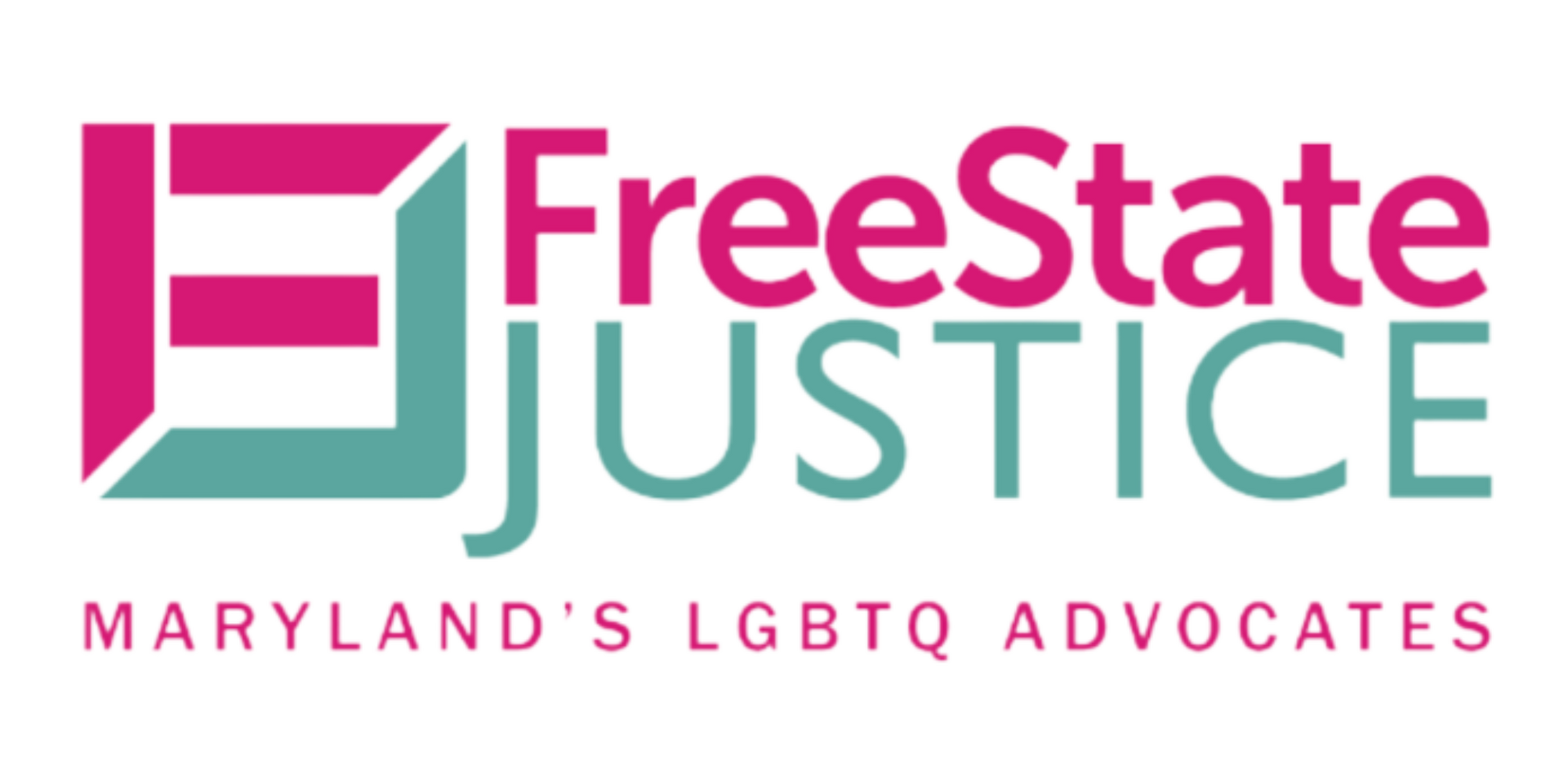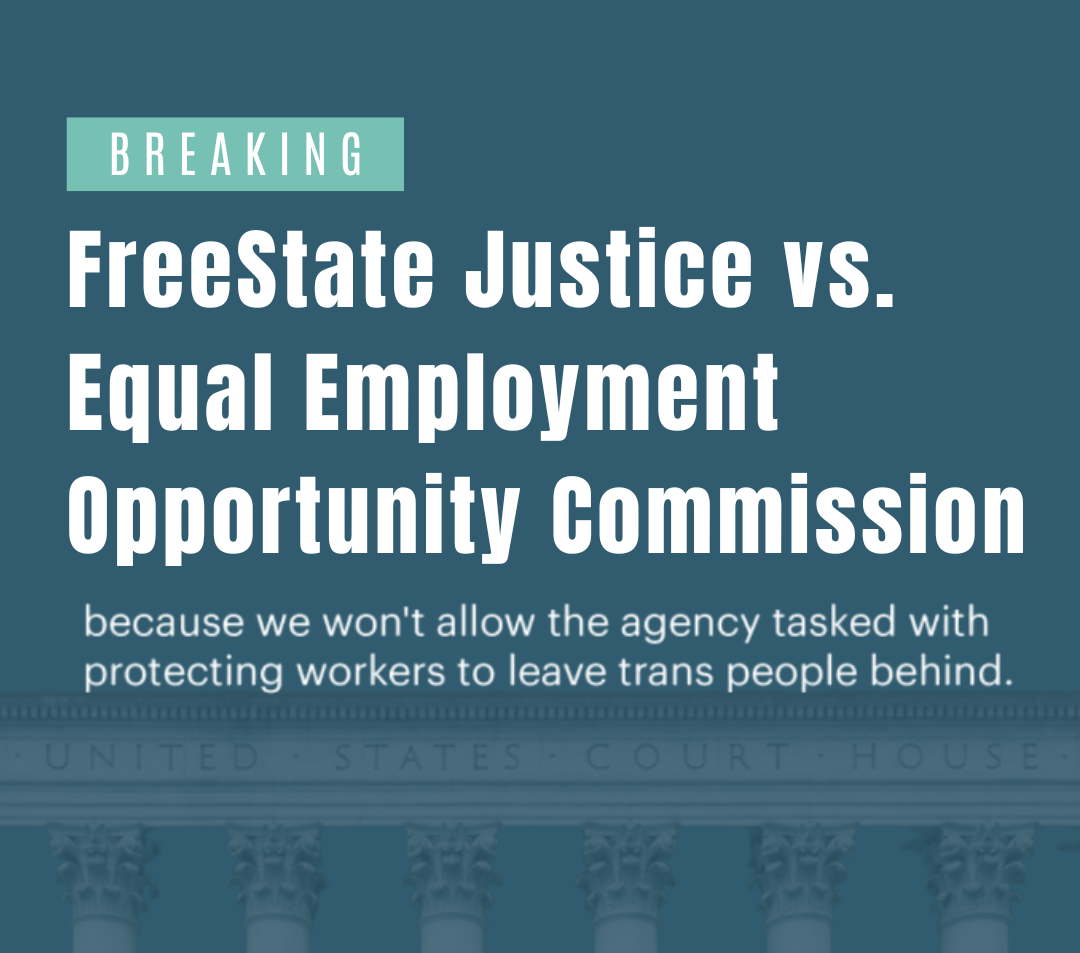By Joel Medina
•
October 3, 2025
This week, the Carlton R. Smith Jr. HIV Modernization Act (SB0356) takes effect in Maryland, a historic piece of legislation that repeals decades-old laws that criminalize people living with HIV. This marks a significant victory not only for every Marylander, but for FreeState Justice (Maryland’s leading LGBTQ+ legal services organization) and the broader coalition of advocates who have fought for years to pass this law. Behind this win lies countless hours of relentless advocacy from FreeState Justice, the Maryland HIV Coalition, and more than a dozen local and national partners. After coming close to passage in 2024 but ultimately failing, advocates launched a renewed campaign to carry this bill across the finish line and get it passed on May 20, 2025. FreeState Justice is honored to have played a key role in these advocacy efforts, raising awareness about the benefits of this legislation and implementing numerous community outreach efforts to support its passage. “The passage of this act is a long-overdue step toward justice for people living with HIV in Maryland,” said Phillip Westry, Esq., Executive Director of FreeState Justice . “For too long, outdated laws have targeted and punished people simply because of their HIV status — this legislation corrects that harmful mistake. We’re proud to have helped lead the coalition behind its passage and are honored to uplift the legacy of Carlton R. Smith Jr., whose life’s work made this moment possible.” FreeState Justice would like to extend its deepest gratitude to the partner organizations and legislative champions who helped pass this bill: Chair of the LGBTQ+ Caucus Delegate Kris Fair, Chair of the Judicial Proceedings Committee Senator William C. Smith, and Senator Emeritus Shirley Nathan Pulliam. And, of course, the trailblazer who made this piece of legislation possible: Carlton R. Smith Jr., and his family for so graciously lending his name to this legislation. Carlton R. Smith Jr. is a beloved Black LGBTQ+ and HIV/AIDS activist, affectionately known as “The Duchess” by the many people who knew and loved him. Diagnosed with HIV in 1986 at 21 years old, Carlton turned his diagnosis into decades of advocacy for the dignity of people living with HIV. He co-founded Blaq Equity Baltimore, launched Baltimore BLAQ Pride, and spent his life pushing for policy change rooted in racial justice and LGBTQ+ pride. Carlton passed away in May 2024, and his legacy lives on in every person protected by this law. The passing of the Carlton R. Smith Jr. HIV Modernization Act will be felt most by Maryland’s LGBTQ+ communities—particularly Black and trans Marylanders—who have for too long been over-policed and imprisoned by this state’s outdated laws. By decriminalizing people living with HIV, the law removes a dangerous barrier to care and safety, reducing stigma and making it easier for people to seek related services without fear of prosecution. Not only that, but it also serves as a roadmap for activists across the country to enact similar changes in their own communities. It is truly a monumental piece of legislation, and FreeState Justice is honored to celebrate its taking effect. “The Carlton R. Smith Jr. HIV Modernization Act is proof that policy can evolve to match science, justice, and the lived realities of our communities,” said Ronnie L. Taylor, Community Impact Director at FreeState Justice. “For decades, Maryland’s HIV criminalization laws fueled stigma and fear rather than safety and care. I know how these laws have disproportionately harmed Black and LGBTQ+ Marylanders, pushing too many of us to the margins. This victory honors Carlton’s legacy and shows that when we center dignity and public health, we can rewrite laws that once wrote us out. With this passage, Maryland says clearly: our lives are not crimes.” If you or someone you know has questions about how the Carlton R. Smith Jr. HIV Modernization Act impacts them, please reach out to the FreeState Justice’s legal team here .

